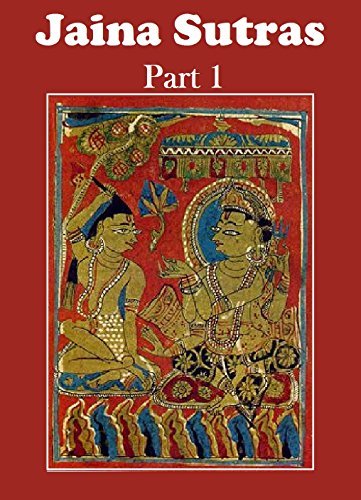Acaranga-sutra
by Hermann Jacobi | 1884 | 71,211 words | ISBN-10: 8120801237 | ISBN-13: 9788120801233
The English translation of the Acaranga Sutra, which represents the first the 12 Angas in Shevatambara Jainism. It is traditionally dated to the 5th-century BCE and consists of two parts containing lectures based on the teachings of Mahavira. Topics include: lifestyle of an ascetic: conduct, behavior, collecting alms, clothes, mode of walking and ...
Lecture 8
[Eighth lecture (uddesaya, uddeśaka): Ṭhāṇasattikkayaṃ, sthānasaptaikakam]
When a monk or a nun wishes to perform religious postures[1], they should enter a village or a scot-free town, &c.; having entered it, they should not accept a place, even if it is offered, which is infected by eggs or living beings, &c.; for such a place is impure and unacceptable. In this way all that has been said about couches (in the Second Lecture) should be repeated here as far as ‘water-plants’ (II, 2, 1, § 5). (1)
Avoiding these occasions to sin, a mendicant may choose one of these four rules for the performance of religious postures.
This is the first rule:
I shall choose something inanimate[2], and lean against it; changing the position of the body, and moving about a little, I shall stand there.
This is the first rule. (2)
Now follows the second rule:
I shall choose something inanimate, and lean against it; changing the position of the body, but not moving about a little, I shall stand there. This is the second rule. (3)
Now follows the third rule:
I shall choose something inanimate, and lean against it; not changing the position of the body, nor moving about a little, I shall stand there.
This is the third rule. (4)
Now follows the fourth rule:
I shall choose something inanimate, but I shall not lean against it; not changing the position of the body, nor moving about a little, I shall stand there. Abandoning the care of the body, abandoning the care of the hair of the head, beard, and the other parts of the body, of the nails, perfectly motionless, I shall stand there.
This is the fourth rule. (5)
One who has adopted one of these four rules, &c. (see II, 1, 11, § 12).
This is the whole duty, &c.
Thus I say.
Footnotes and references:
[1]:
Ṭhānaṃṭhāittae.
[2]:
As a wall, &c.
